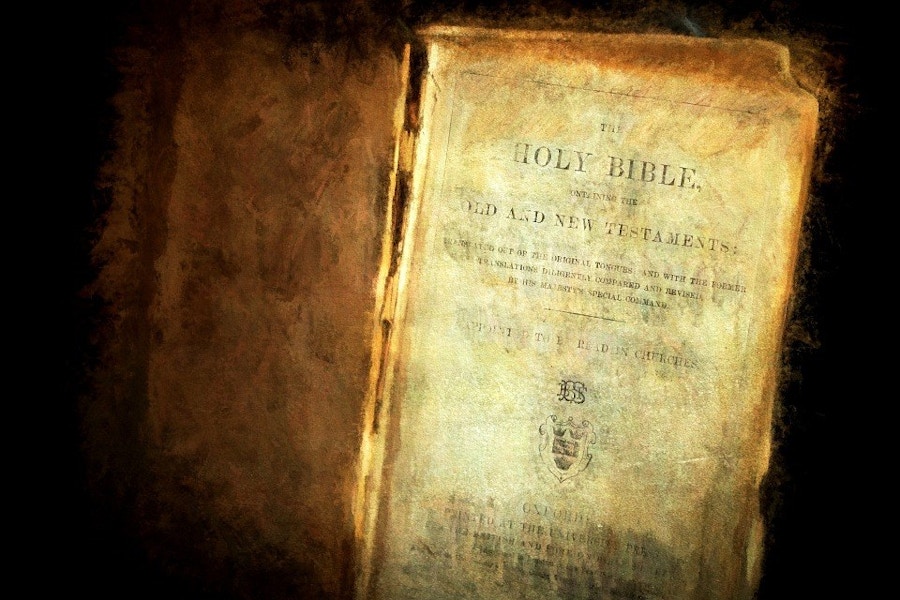Up to this point, we have seen how the incomprehensibility of God is taught in Scripture and also how it has been included in the theological reflection of folks such as the church fathers. The church has been pondering the mystery of God for hundreds and hundreds of years. Augustine, Aquinas, Luther, and Calvin all affirmed God’s revelation to us as incomprehensible mystery, each in their own way.
Yet we might still be inclined to ask, quite simply, how can it be so? If God is really beyond knowledge, then how can it be that the whole Christian church talks so readily about “knowing” God? Indeed, J.I. Packer has written a book with that very title. Note that this question is not quite the same as the more skeptical, can we know God? We can surely rule out the notion that real knowledge of God is simply impossible. The united testimony of Scripture and tradition combines with the concrete experience of Christians like you and me to insist that knowledge of God certainly is possible, for it actually does happen. So my question is not “whether” but “how.”
This “how” question is real and extremely important. We might sometimes overlook its force, because the question seems to be so easily answered by a straightforward appeal to God’s revelation, and especially to his revelation in Scripture, where the mystery has been revealed. We can know the incomprehensible God because, to put it simply, he has told us about himself. This answer is right in so many ways that one is hesitant to quarrel with it, but we must pause to remember just what we mean — and what we do not mean — when we speak about knowing the incomprehensible God.
To say that God is “incomprehensible” is not to say merely that he is not comprehended; it is to say that he cannot be comprehended by finite, creaturely minds. As I’ve noted in past blogs, God is not an investigative mystery that could, in principle, be resolved if only we consulted the right sources (say, an inerrant Bible). No, God is a revelational mystery, who has made himself known precisely as a mystery, precisely as a transcendent reality that does not fit neatly into the logical or linguistic categories we use when we think about anything.
Do you remember our analogy from Flatland? It might, of course, be a very good thing for Flatlanders to have an inerrant revelation about the mysterious object called a cylinder rather than merely relying on their own flawed perceptions and speculations. Such a revelation might allow the Flatlander to say, “Yes, I am convinced: there are objects that are both round and square at the same time.” But what the revelation cannot do is to show him how that roundness and that squareness concretely fit together in a single figure. In this sense, he still does not know what a cylinder is. He believes that there is such a thing on the basis of the revelation given to him, but he still does not comprehend it, and he has little idea how to live with his new knowledge in day-to-day, practical terms.
So also, Scripture gives us true propositions about the transcendent Creator, spoken to us in a creaturely idiom that we can readily understand. And we can certainly expect that God knows how best to use that idiom: his revelation is fully trustworthy. But for us to know the reality of which the revelation speaks requires something more. The Flatlander, if he is to engage a three-dimensional world, does not need simply a set of incontrovertible propositions: he needs to be drawn out of Flatland altogether. Similarly, the creature who would know God needs — somehow — to move beyond mere creatureliness. To know the God who surpasses knowledge requires not just having the right sources of information. It requires being the right kind of knower.
How, then, is this seemingly impossible task to be accomplished? How can we approach the one who dwells in unapproachable light? How are mere creatures to gain and to live in the knowledge of a truly incomprehensible God? The answer is bound to be complex, but its basis can be easily stated. The fundamental premise for true knowledge of God is this: God desires for us to know him, and he has acted, in creation and redemption, to make just such knowledge a reality. The basic assertions here rest squarely on the Christian understanding of who God is, and so we must start our investigation at that point — the nature of God.
Catch up with all of Chris’s blog posts in this and other series at Conversations with Chris.
This series has been adapted from Steven D. Boyer and Chris Hall’s The Mystery of God: Theology for Knowing the Unknowable. Hungry for more? Please visit Baker Academic for more information.


